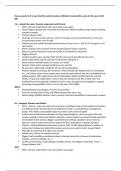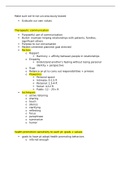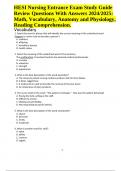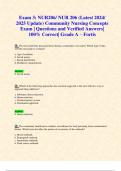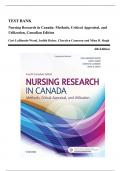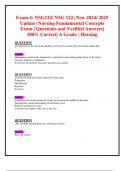Other
A/A* Student's Essay Plans for Stuart Society (A-Level History, Unit 1C, Britain : conflict, revolution and settlement, Pearson Edexcel)
- Institution
- PEARSON (PEARSON)
This document provides a set of essay plans for responses to past paper questions (complete with criteria, numerous factors, a line of argument, and detailed evidence) for the Society sub-topic of Unit 1C 'Britain, : conflict, revolution and settlement'. These essay plans can serve as a guide for a...
[Show more]
